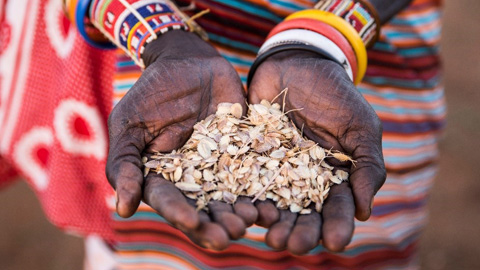Scientists warn on the dangerous implications of losing Indigenous and Local Knowledge systems

An international study involving the ICTA-UAB warns about the pervasive social and ecological consequences of the destruction and suppression of the knowledge systems of Indigenous Peoples and local communities.
07/07/2021
The paper, recently published in the Journal of Ethnobiology, draws on the knowledge of 30 Indigenous and non-Indigenous co-authors from around the world. The article is part of the “Scientists’ Warning to Humanity” series, which highlights threats to humanity caused by climate change, biodiversity loss, and other global changes.
The authors, including ICREA research professor at ICTA-UAB Victoria Reyes-García, summarize how the knowledge systems and practices of Indigenous Peoples and local communities play fundamental roles in safeguarding the biological and cultural diversity of our planet. It also documents how this knowledge is being lost at alarming rates, with dramatic social and ecological consequences.
“Although Indigenous and Local Knowledge systems are inherently adaptive and remarkably resilient, their foundations have been and continue to be compromised by colonial settlement, land dispossession, and resource extraction. The ecological and social impacts of these pressures are profound and widespread”, says Dr. Álvaro Fernández-Llamazares, from the University of Helsinki (Finland), one of the lead co-authors of the study.
The article highlights 15 strategic actions to support the efforts of Indigenous Peoples and local communities in sustaining their knowledge systems and ties to lands. Dr. Dana Lepofsky, from Simon Fraser University and co-lead author, says “We worked hard to find a balance between discussing the threats to Indigenous and local knowledge and highlighting how Indigenous Peoples and local communities are taking action to turn around these threats. Around the world, Indigenous Peoples and local communities are celebrating, protecting, and revitalizing their knowledge systems and practices. As scientists, policymakers, and global citizens, we need to support these efforts in our professional activities, in the policies of our governmental agencies, and in our personal choices.”
Victoria Reyes-García, ICREA Research professor at ICTA-UAB, one of the authors of the article who has been working on local knowledge systems emphasizes that “this research is very important because, given the many intricate ways in which social and ecological systems are connected, the loss of Indigenous and local knowledge systems has implications for biodiversity loss. In that sense, the loss of biocultural diversity (i.e., linked biological and cultural diversity) reduces the options of humanity to live and adapt to the different ecosystems in the planet, reducing our capacity to adapt to environmental crisis”.
Reference
Álvaro Fernández-Llamazares et al. 2021. Scientists’ Warning to Humanity on Threats to Indigenous and Local Knowledge Systems, Journal of Ethnobiology 41(2): 144-171
This information is related to the following SDG
Life on land
Reduced inequalities
Responsible consumption and production